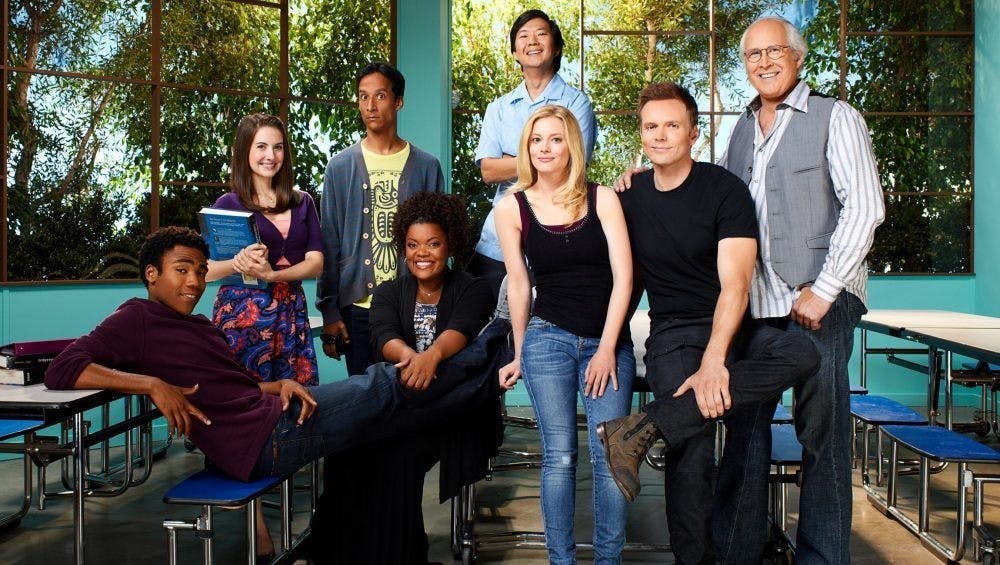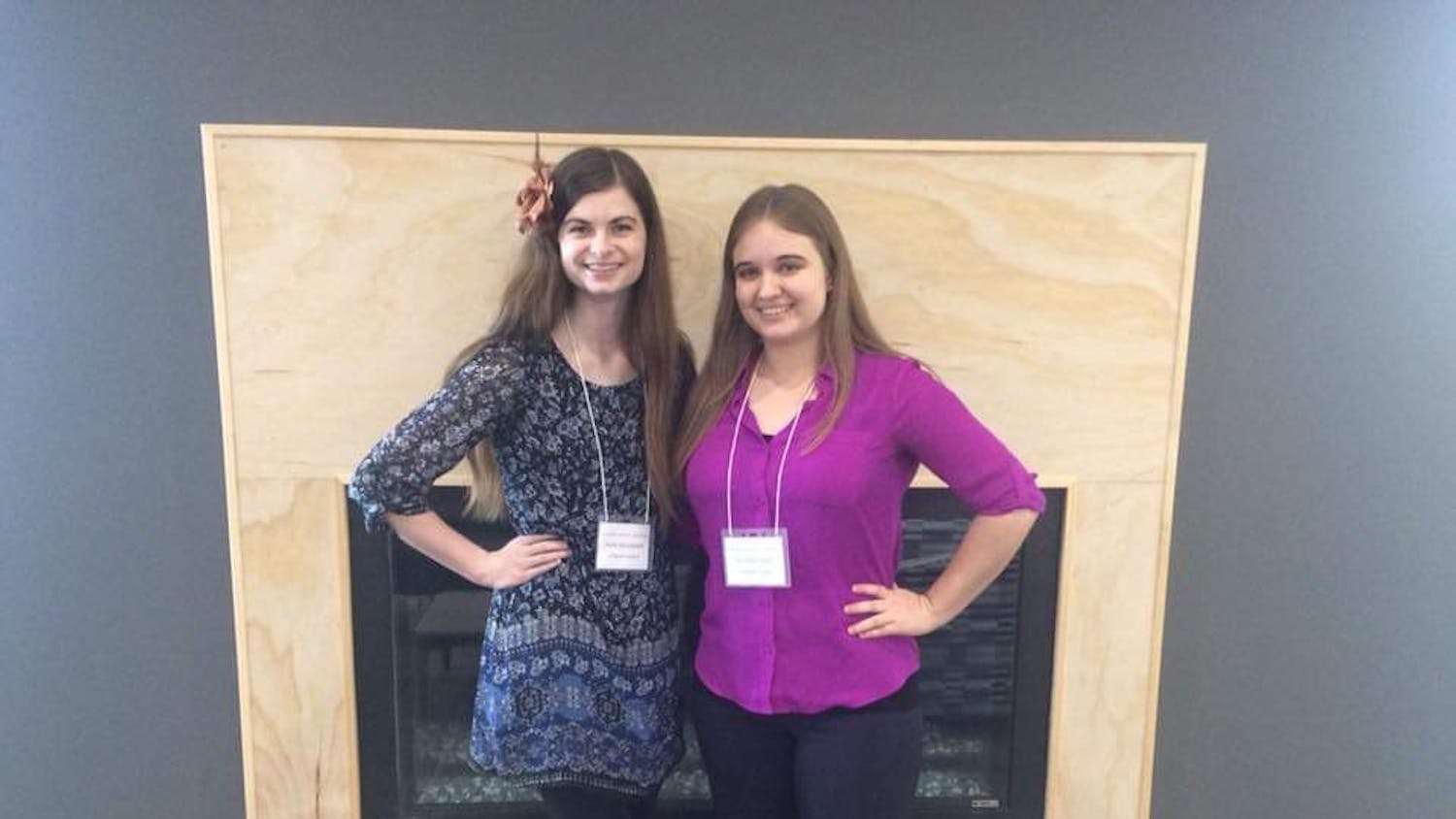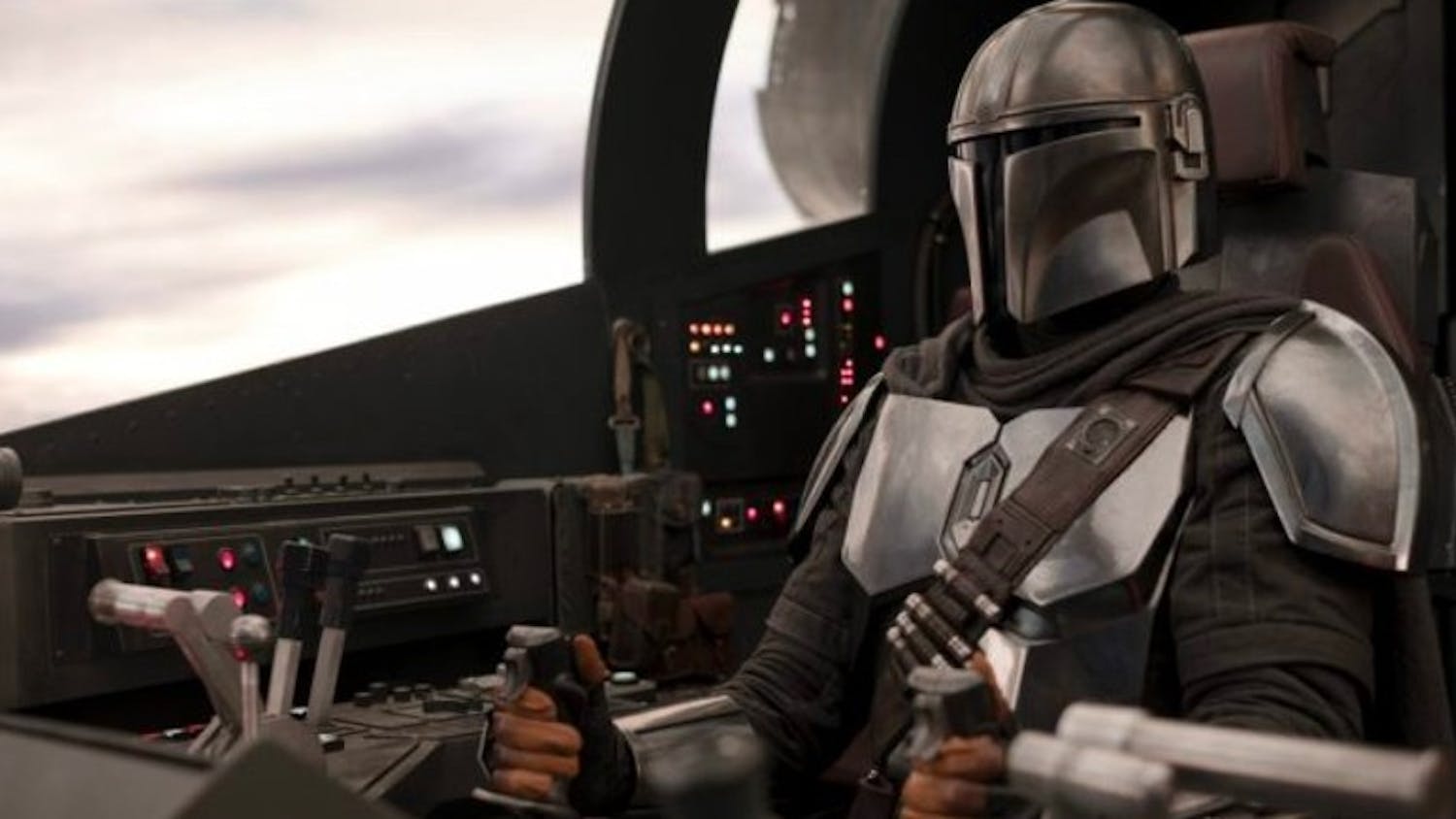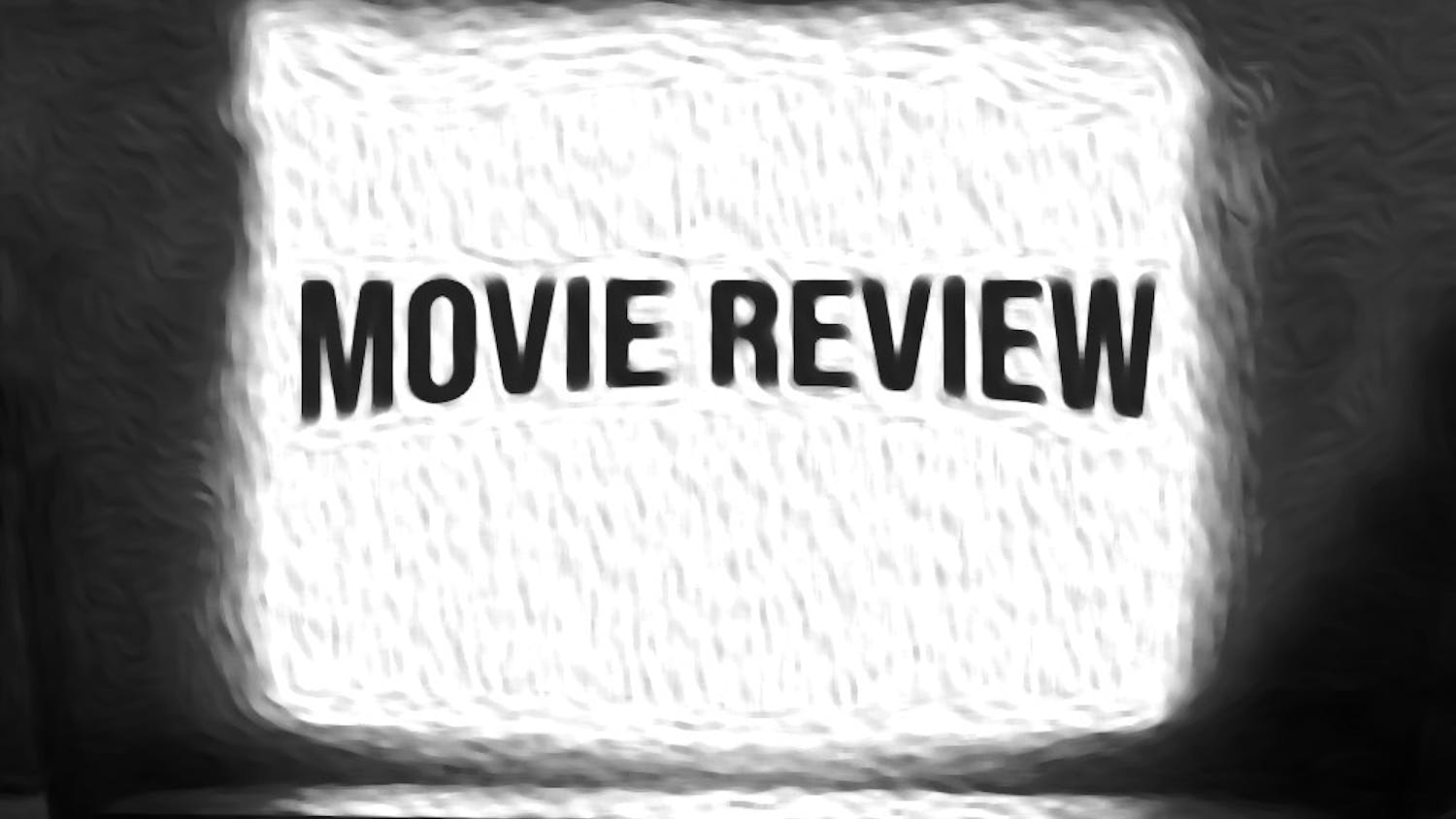With “Friends” gone from Netflix and “The Office” scheduled to leave in 2021, viewers are left looking for a new timeless sitcom to fill their streaming slots. Thankfully, Netflix has picked up a new set of friends, the zany students and staff of Greendale Community College in Dan Harmon’s outrageous sitcom “Community.”
While best known as the co-creator of “Rick and Morty,” Harmon broke into the television world with this series, featuring a star-studded cast — Joel McHale, Alison Brie, Donald Glover, Ken Jeong, John Oliver, Chevy Chase and more.
The story begins simply enough — Jeff Winger (McHale) was once a high-rolling lawyer of the sleaziest degree, until his undergrad degree was revealed to be a fake. Now, he is forced to enroll at Greendale, the world’s worst-managed community college. There, what begins as a fake study group to impress his Spanish classmate blossoms into a bizarre makeshift family.
“Community” sets itself apart from similar ensemble sitcoms, however, through its commitment to self-aware, referential humor and “concept episodes” — distinct episodes featuring a certain style or an unexpected plot that parody pop culture and genre tropes. Over the six season run, the study group’s experiences are shown through the frames of action movies, found-footage, stop-motion animation, arcade games and even historical documentaries. There were paintball wars, Dungeons & Dragons sessions, alternate realities and a brief military dictatorship.
All of these eccentricities made the show special, but also sparked public feuds between Harmon and the station executives, who seemed far more interested in achieving another mainstream hit with mass appeal.
“Community” responded to such requests by opening their Season 3 premiere with a song and dance number in which the characters vowed this year they would become more calm, normal and “finally be fine.” What followed was, without a doubt, one of the most brilliantly insane seasons of television ever produced.
Behind-the-scenes drama would continue to plague the show, however, as did perennially low ratings that left it always on the edge of cancellation. Cast departures and Harmon’s temporary firing caused later seasons to decline in quality, but not so much as to stop being entertaining and creative in brave new ways.
At the end of the day, it was the outrageousness in which “Community” presented itself that makes it continue to stand out as one-of-a-kind to this day, even as its brand of humor has become more widely popular. But it was the characters that truly made it timeless.
Beneath all its eccentricities, the show is ultimately the story of broken people searching for their place in a society that has rejected them. Trapped in a place none of them want to be, they must overcome selfishness, prejudice and a myriad of other personal flaws to finally find acceptance and a sense of identity in the new community they have forged.
In a way, the journey of the show itself follows the arcs of Winger, Annie Edison (Brie), Troy Barnes (Glover), Abed Nadir (Danny Pudi) and their classmates. Beneath the winning jokes and the quotable catchphrases (and there are so, so many of those) there is something deeply human to learn about ourselves and each other.
Eleven years after it premiered, the work of the cast and crew continues to prove to be, to quote Pierce Hawthorne (Chase), “Streets ahead.”
Community is a surprising show full of characters you’ll never forget, perfect for bingeing in quarantine as a reminder that no matter how troubled the times, families can form in the unlikeliest of places. (4/5)





